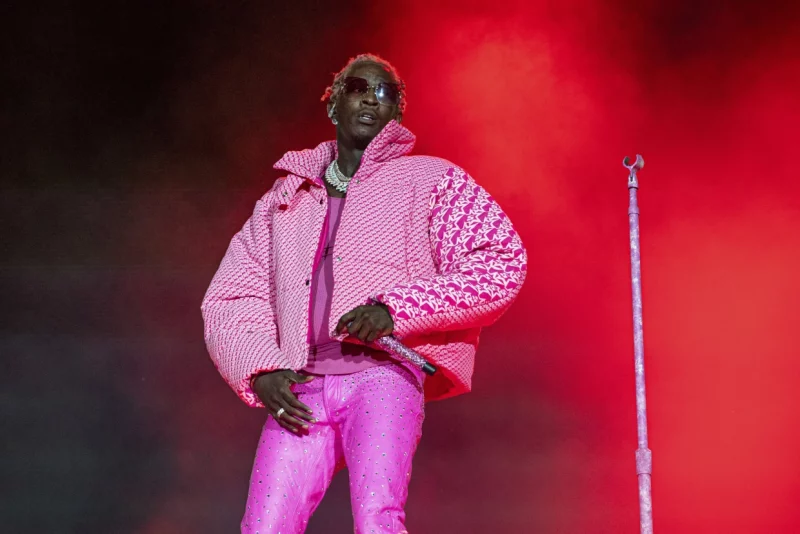Black rappers call out double standard of using hip-hop lyrics as evidence in rapper Young Thug’s criminal trial
Share
Explore Our Galleries
Breaking News!
Today's news and culture by Black and other reporters in the Black and mainstream media.
Ways to Support ABHM?
By Safia Samee Ali, NBC News

As the high-profile criminal trial of rapper Young Thug began this week, Black rappers who have had their lyrics used against them by prosecutors as evidence of criminal activity have renewed calls to end the practice, saying that although violence and other dark themes are frequently referenced in many artistic works, they are weaponized only against hip-hop artists.
Young Thug, whose legal name is Jefferey Lamar Williams, is one of 28 people named in an indictment in May that accuses them of violating Georgia’s Racketeer Influenced and Corrupt Organizations (RICO) Act by engaging in gang activity allegedly connected to multiple murders, shootings and a string of home invasions over almost a decade. Several of the men, who are affiliated with the Atlanta rap crew YSL, have pleaded guilty, with 14 of them — Young Thug being the most widely known — left to face charges. The trial is expected to last six to nine months.
Young Thug and the other defendants maintain that YSL is a collective of rappers; prosecutors, however, say the group is a gang that has committed numerous crimes and plan to use lyrics that reference crime and violence as evidence in court.
The ongoing case has dredged up painful memories for McKinley Phipps, a hip-hop artist known professionally as “Mac.” He was signed to No Limit Records before he was convicted of manslaughter, for which he spent two decades in prison.
“Hip-hop itself is just a medium, a predominantly Black medium, and it can be expressed negatively or positively, but I would argue that over 99% of the artists that are writing these songs are either highly exaggerated or downright fiction,” Phipps said.
When even lyrics could contribute toward a prison sentence, are Black Americans free at last? A California bill was proposed to ban the use of rap lyrics in court.
Get more Black entertainment news.









Comments Are Welcome
Note: We moderate submissions in order to create a space for meaningful dialogue, a space where museum visitors – adults and youth –– can exchange informed, thoughtful, and relevant comments that add value to our exhibits.
Racial slurs, personal attacks, obscenity, profanity, and SHOUTING do not meet the above standard. Such comments are posted in the exhibit Hateful Speech. Commercial promotions, impersonations, and incoherent comments likewise fail to meet our goals, so will not be posted. Submissions longer than 120 words will be shortened.
See our full Comments Policy here.